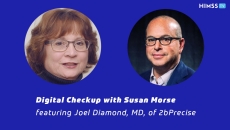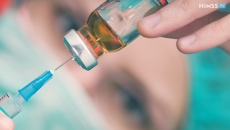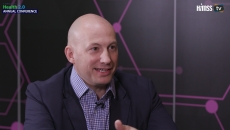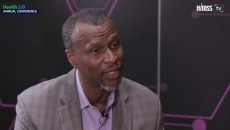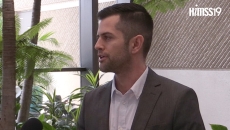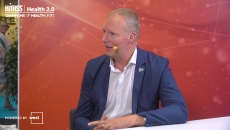precision medicine
Joel Diamond, MD, CMO of 2bPrecise, discusses pharmacogenomics as a good entry point for providers in precision medicine, identifying the right medicine for better outcomes and patient satisfaction.
Deep Dive: By integrating social factors, genomics and medical histories, clinicians are better able to treat patients.
SPONSORED
The advantages to health and human service delivery in a bot workforce include speed, reliability, consistency and cost-effectiveness. Sound too far-fetched for your management team? We would disagree.
Insights into personalized genomics can help prevent diseases in outer space.
DayTwo's metagenomics and gut microbiome database helps connect diabetics and others with evidence-based "food-as-medicine" treatment regimens, explains Josh Stevens, the company's president.
Mark Jackson, VP at NantHealth, was at Health 2.0 looking for new opportunities to bring valuable cloud-based data to physicians at the point of care.
An interview with Hakim Yadi, chief executive and cofounder of Closed Loop Medicine.
Andrew Rebhan, consultant at The Advisory Board, discusses new advances in artificial intelligence, biopsychosocial IT, internet of things, 3D printing, augmented reality and more.
The Singapore-MIT Alliance for Research and Technology (SMART), together with A*STAR Institutes and supported by the National Research Foundation (NRF), has launched a new national initiative dubbed Critical Analytics for Manufacturing Personalised-Medicine (CAMP).
Kalle Killar, deputy secretary general at the Ministry of Social Affairs in Estonia, says that nearly 20% of the country's citizens are gene donors, giving it a very valuable asset for implementing precision medicine.
